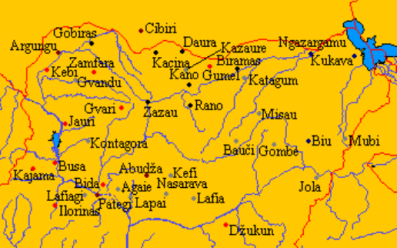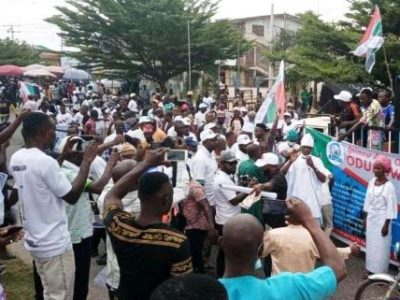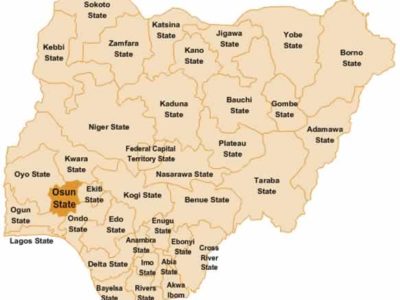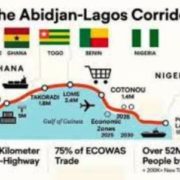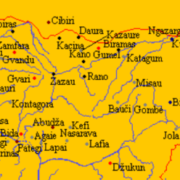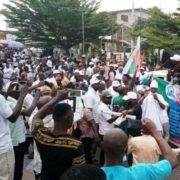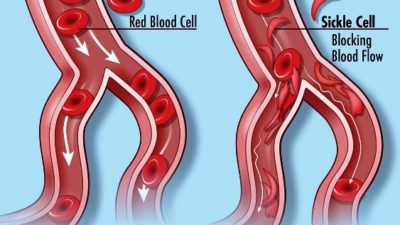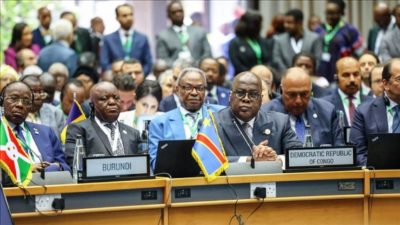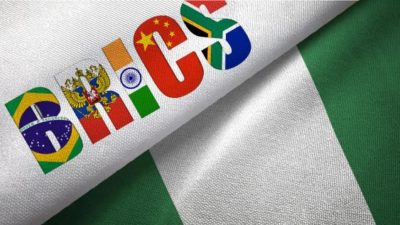“There is a way leaders in the political space conveniently forget that performance and competence are key players in party sustainability and that no amount of political inducement or violence can help obliterate a cumulative history of non-performance. “
By Abiodun KOMOLAFE
Oftentimes, intrigues exist in political matrixes. Concepts such as political mass participation, collective demands, group identity and determination, and collateral damages could all mean different things to different people. It only depends on which side of the divide the definer pitches his or her tent. This unrestricted latitude and privilege to operationalize concepts and political ideas (especially in Nigeria) with ‘sidon look’ response from the masses breeds complacency on the part of the political gladiators. The salient issue, however, is that a little divergence from the standard definition or central course gnaws on both the integrity and legitimacy of the political institution.
Complacency comes in a surreptitiously slow-but-seamless manner. It doesn’t make noise even as it rubs in on people with definitive exactitude. Political activists become complacent when they are no longer thinking with the people, when they think they know it all, and when they are eventually disconnected from the people. A discernible disconnect between the people and the political party is always in a spiral form, thereby making it problematic to actually curb, or control. The central rule is: never take the people for granted! Political party is about the people, and for the people; not the people for the political party! To this end, the leadership of any party must stop thinking for the people, but with the people. These are the issues!
Once upon a time in Nigeria’s chequered history, the National Party of Nigeria (NPN) was indeed a national party. During the 2nd Republic, NPN was the party to beat while other political parties appeared like Lilliputians. As time went by, Nigerians began to see it as a party of the elite, the powerful and the rich. So, the mass of the people, who obviously constituted the majority, started leaving the ‘One Nation, One Destiny’ arrangement because, to them, they had nothing to show for being committed members of the party. After all, if you’re a politician of the NPN hue, you must be rich; otherwise, you’re just being used as cannon fodder. The perception went through the masses and it was well-received. Since politics is a game of numbers, the mass of the people left NPN – unknown to the party – for other political parties that showed some empathy towards the masses and the downtrodden.
Whereas Obafemi Awolowo’s Unity Party of Nigeria (UPN) was determined to give the people, especially, the children of the poor ‘Free Education’, NPN started talking about ‘qualitative education’, which meaning was lost to the deaf ears of the masses. As far as they were concerned, what’s the meaning of ‘Qualitative Education’ when somebody else was ready to offer ‘Free Education’? In their opinion, that’s one sure way of deviating from the central theme of a political party. Thenceforth, complacency tampered with the destiny of NPN and its life never remained the same again! Sad therefore that the once-national party insisted on losing its vital contents! Ultimately, disintegration became its lot even before the military struck on December 31, 1983 and cleared whatever remained of NPN as a political party.
There was also a time when the Peoples’ Democratic Party (PDP) boasted that it would be in power for the next fifty years. As fate would have it, Nigerians are now witnesses to what have become of its fortunes as a result of complacency, particularly, on the part of its leaders. Take, for instance, time it was in Nigeria when every nook and cranny of the country was overstuffed with the ‘Umbrella’ men: strong in structure and texture, and powerful in shape and size! It was such a rich, national party that it was at a time assumed to be the biggest party in Africa. To its handlers, power was a personal property that could last forever even as they had forgotten that ‘disservice power is like power thrown away.’ For the once-thriving party, the rest is history! Labour Party (LP) came recently, allegedly, from nowhere, only to help put a ‘dying-slowly’ lid on the hope of the hitherto formidable party!
“Complacency tampered with the destiny of NPN and its life never remained the same again! Sad therefore that the once-national party insisted on losing its vital contents! Ultimately, disintegration became its lot even before the military struck”
When PDP came, the general thinking was that the party would have learnt a lesson or two from its forebears because, in terms of structure and configuration, PDP and NPN were Siamese twins from the same father, the Northern People’s Congress (NPC) of old; but, unfortunately, they went the same way! Now, and in our very eyes, PDP is disintegrating! Since the focus of its leadership is no longer the people but what each leader and/or handler can covet and convert to personal advantages, is it any wonder that members of the same political family are now fighting over positions? Aren’t they fighting over, even monetising privileges and personalise perks of office?
By the way, while the loss of the National Assembly seats by the All Progressives Congress (APC) to the PDP in the just-concluded Osun State House of Assembly election was an expression of what had long happened and crystallized, the ‘25-1’, winner-takes-all choristers might have forgotten that the Ademola Adeleke swing wasn’t the first in the state’s rich political history. With the benefit of hindsight, Osun has once experienced the Olagunsoye Oyinlola ‘25-1’ swing (in 2003) and Rauf Aregbesola’s ‘26-0’ has also happened to the state (in 2011). Yet, the heavens did not fall! Anyway, this is a story for another day!
Complacency helps in pushing people away. On the other hand, it represents a gateway for renewal because it also causes the people to think. Complacency shrinks the horizon of political parties and spells their doom. When a system becomes unsystematic, aberration steps in and discipline is the first casualty as control becomes problematic. Besides, immediately an institution deviates from serving the purpose for which it was created, its social influence and functional relevance are bound to wane with time! Added to these is that power is functional; but, once it starts malfunctioning, its legitimacy is withdrawn. Needless to repeat that it is the reason men of unproven character who have taken over the control of political parties in Nigeria remain liabilities even as they portend ruination to our political system.
To sum up, there is a way leaders in the political space conveniently forget that performance and competence are key players in party sustainability and that no amount of political inducement or violence can help obliterate a cumulative history of non-performance. The principal reason for voting any government into power is to help bring the people up out of the valley of despair where the future is uncertain to the Next Level of development rooted in equality and the international character of mainstream socialism. Were Nigerians gainfully employed, the pressure wouldn’t have been that much on the politicians, and politicians would not have been taking the electorate for a ride! However, since the preys are seen as bootlickers even as the predators are tragically insensitive, one doubts if pressure can stop from being exerted on the politicians.
Above and beyond, since the politicians have always mistaken the masses for political irritants, it is doubtful if they (the politicians) will stop insulting the electorate’s collective intelligence with brazen ignominy. So, until there is a watershed in the life of each party, the way forward will always remain bleak! Normally, the credible way forward is total overhaul! Thankfully again, the introduction of the Bimodal Voter Accreditation System (BIVAS) into Nigeria’s election process has now shown that her future is neither gloomy nor doomed.
May the Lamb of God, who takes away the sin of the world, grant us peace in Nigeria!
*Komolafe wrote in from Ijebu-Jesa, Osun State, Nigeria ([email protected])


